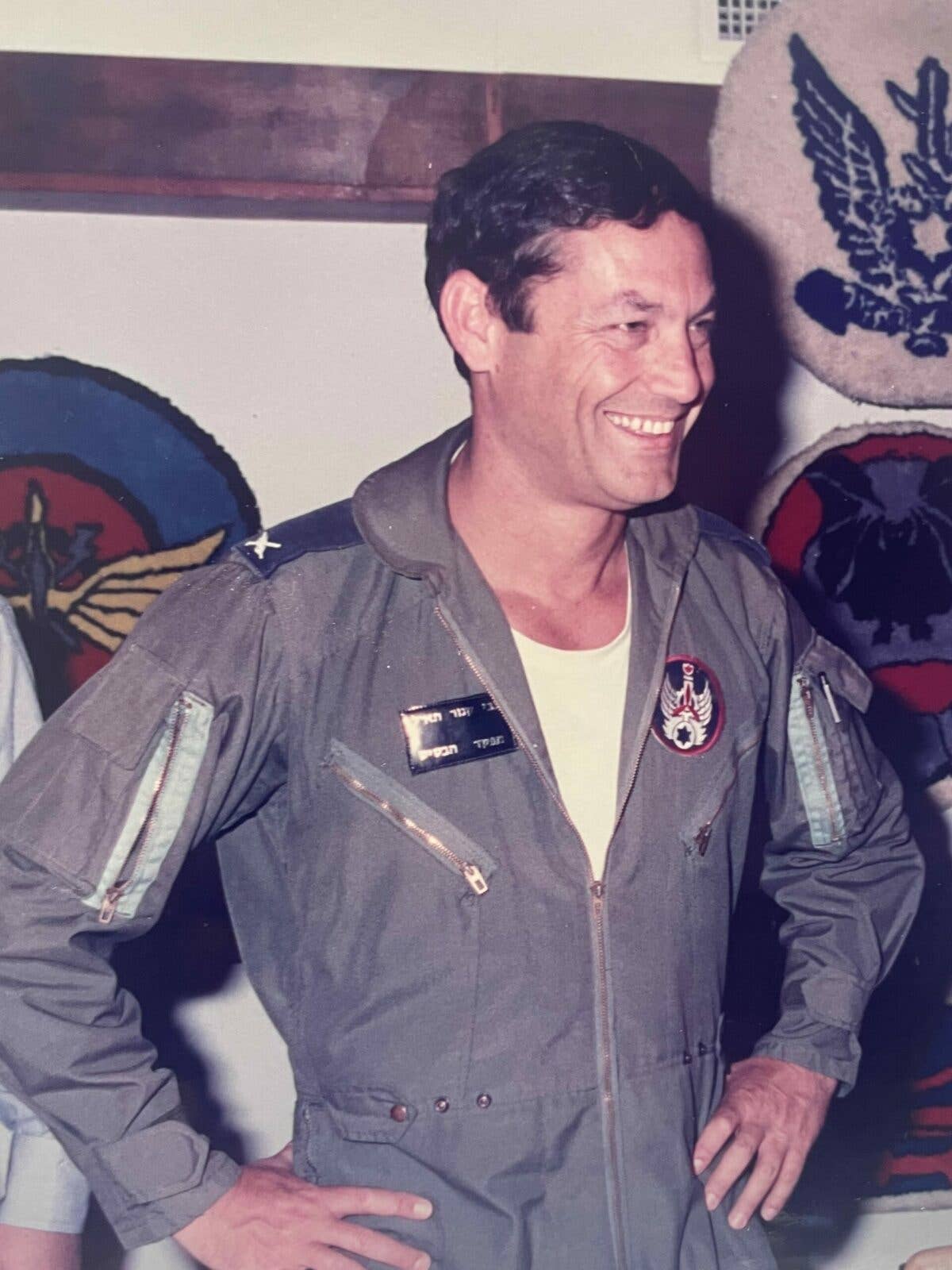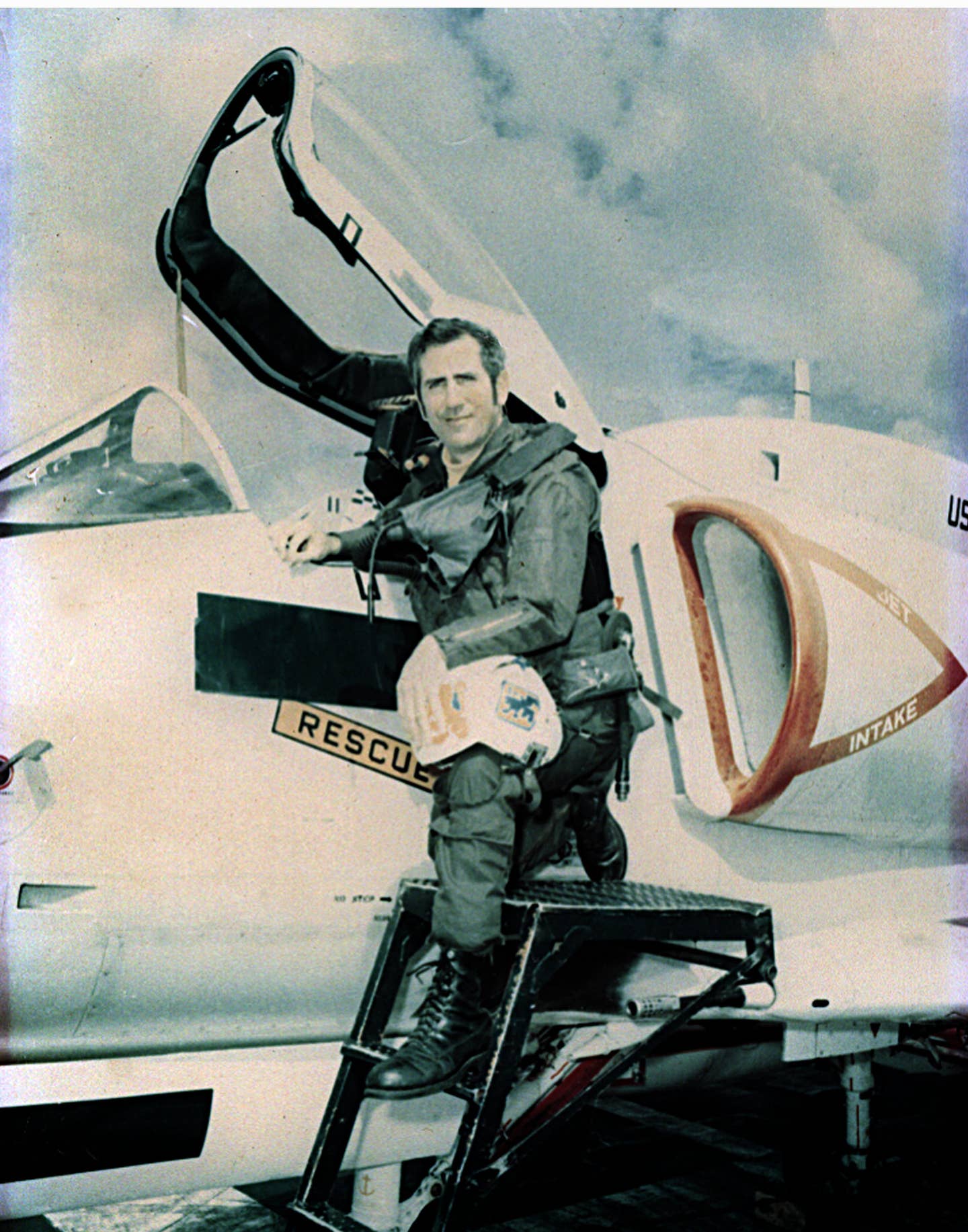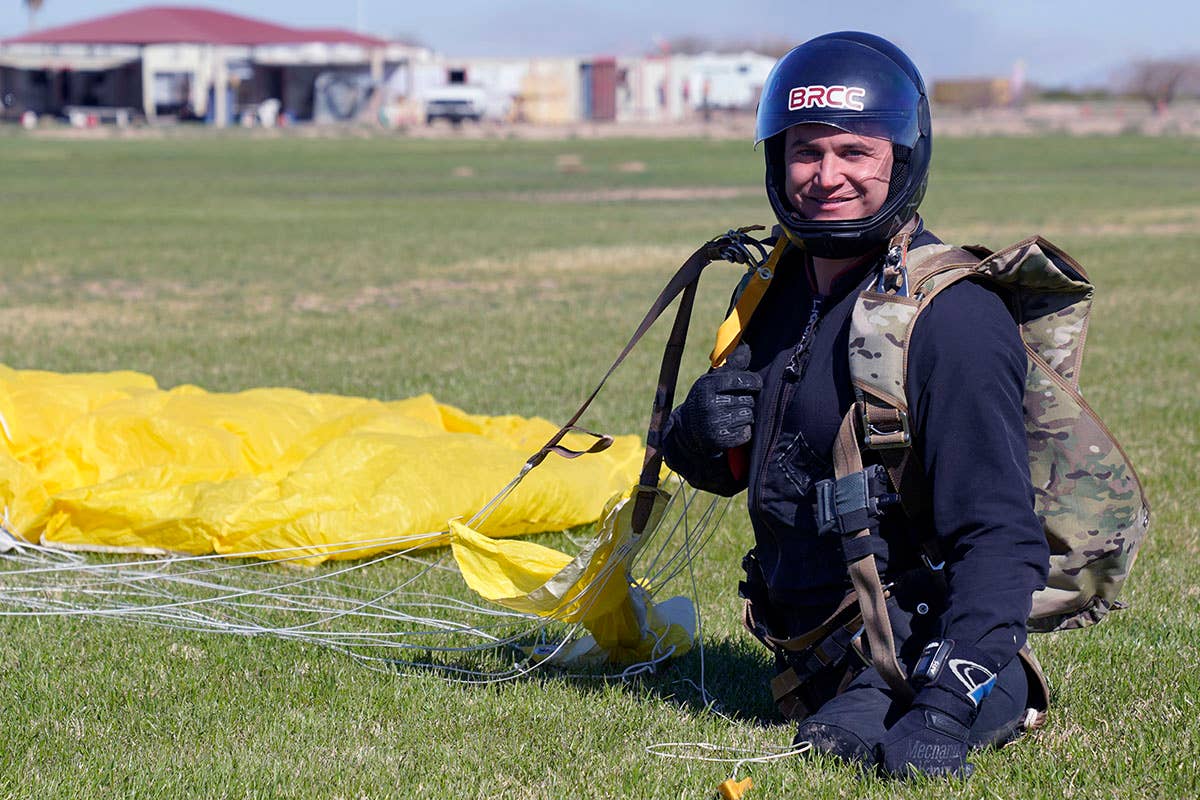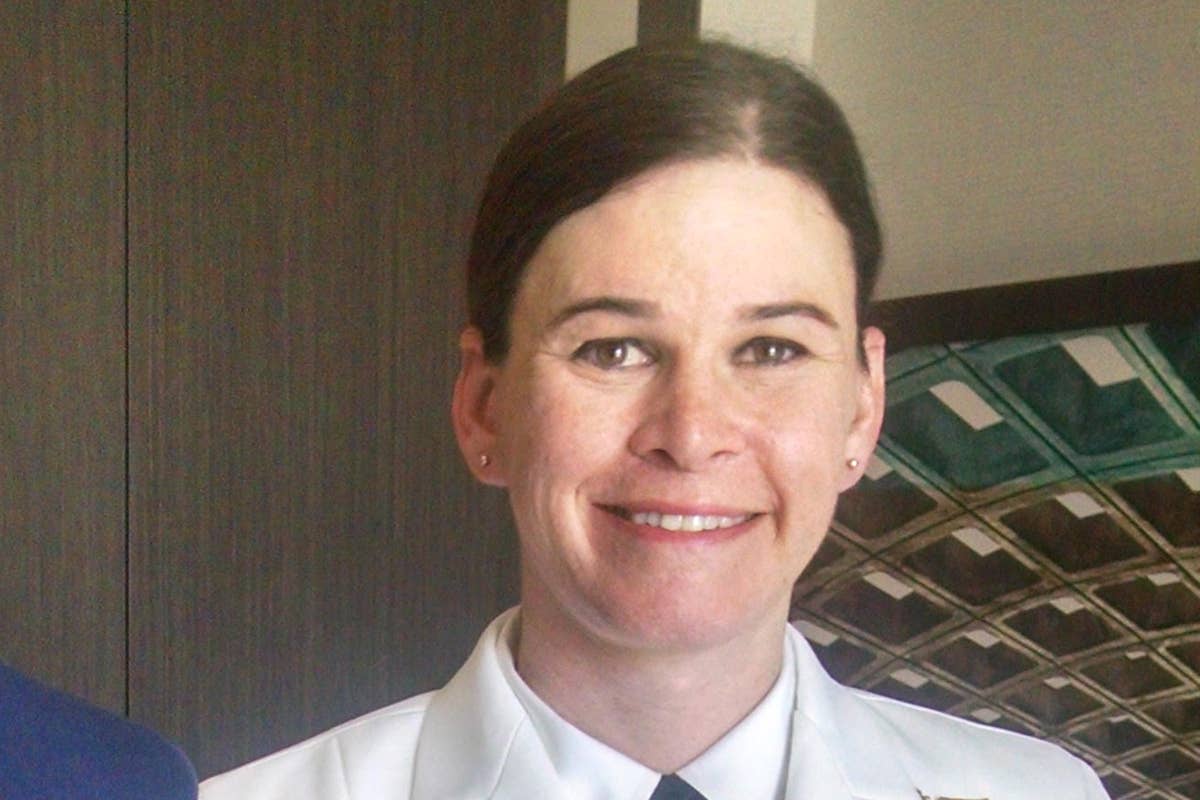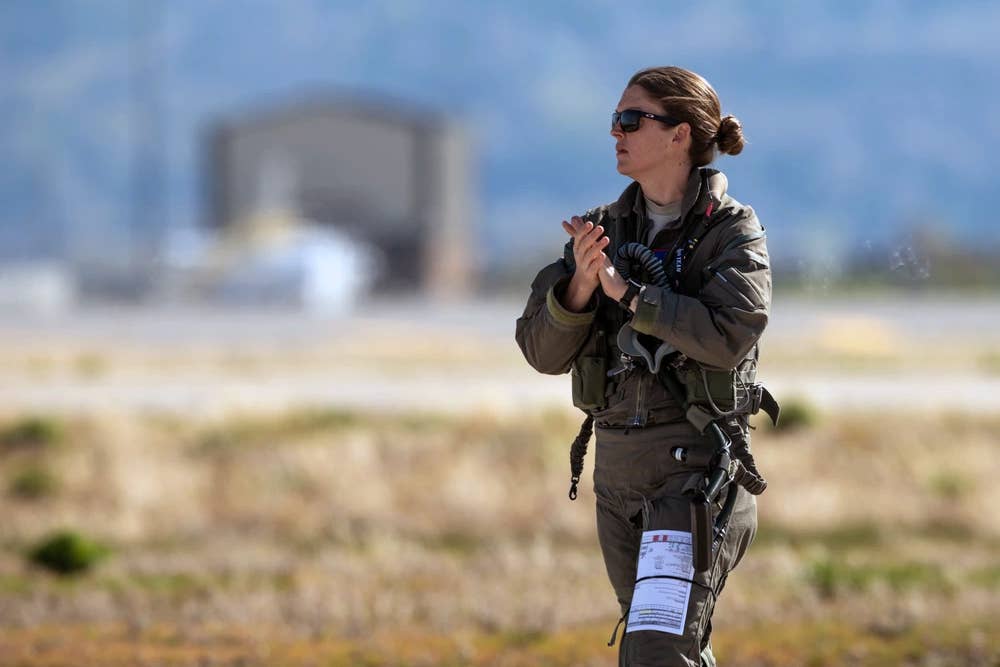Tenacity Helped This C-130 Pilot Earn Her Wings
Despite lack of representation in pilot training, USAF C-130 pilot Capt. Thessa Washington persevered to become one of only two Black pilots in her unit.

U.S. Air Force C-130 pilot Capt. Thessa Washington became the first female Black C-130H pilot in the 165th Airlift wing of the Georgia Air National Guard at Savannah Air National Guard Base last year. [U.S. Air National Guard photo by Senior Airman Renee Crugnale]
Editor’s Note: When U.S. Air Force C-130 pilot Capt. Thessa Washington became the first female Black C-130H pilot in the 165th Airlift wing of the Georgia Air National Guard at Savannah Air National Guard Base last year, she said she never imagined being the first of anything. In fact, there were moments in Washington's journey from sheet metal worker through Undergraduate Pilot Training where she questioned if she was meant to earn her Air Force wings at all. Here is her story, lightly edited for space and clarity, as told to FLYING.
I wasn't one that always knew I wanted to fly. I actually didn't think of that as an option at all. It just never even came into my mind as a thing. I was enlisted first, in college with the Georgia Air National Guard. I wanted to become an officer once I graduated college. I wanted to travel more because my position in maintenance was not giving me the opportunity to travel as much as I wanted to, and that was one of the main reasons I joined the military. I also wanted to stay with the Savannah unit because I enjoyed the Savannah area and the unit itself.
There were only two options with that unit—either pilot or navigator.
One of my sergeants at the time said, "Hey, let's go see what it takes to be a pilot," and I thought she was crazy. She took me to the commander at the time. The process for becoming a pilot is pretty similar to any officer position, at least in my unit. It's pretty similar [to] most other units. You fill out applications. There is an Air Force Qualification Test that you have to take and there's a [Pilot Candidate Selection Method] PCSM test that you have to take. It's basically like a video game to overly saturate you with a lot of tasks at one time to see if you can multitask. Then, you know, transcripts, resumes, letters of recommendation, all the other things that you have to have for any job, really, and any officer performance report (OPR) reviews.
“That's what I was really lacking, my confidence that I belonged there. ”
Our unit wanted people to have private pilot licenses. It's not a requirement, but it's suggested. They do that because they want to make sure that you know that you want to be a pilot, that you've actually tried flying and you'd like it, which makes sense.
At the time of me speaking with my commander, I had no experience flying at all. But afterwards, that's what I went to do. I was like, "Okay, I'll go to a nearby school. And I'll see what it's like and see if I like it."
I did what they call a discovery flight. That's about 45 minutes at a local school in Ridgeland, South Carolina, called Atmosphere Aviation. They took me up and let me control the plane a little bit, and flew me over the marshes toward Hilton Head. I fell in love with it. I said, "This is amazing. This is awesome. Let's do it." That's how I got the itch.
In 2015, I started working on my private pilot's license and building my package to apply for the next board. And the next board was actually happening on my first deployment. I actually did my interview over the phone in the base library in the little phone booth. And I did not get the slot that year. I was put in as a backup, so in the case that someone else didn't make it through or something happened, then I would be pushed through the line to hopefully get in. It took a few more years before that happened.
In 2017, I finally got called up. I went to [Officer Training School] OTS in 2017, graduated [Undergraduate Pilot Training] UPT at Columbus Air Force Base in April of 2019, and finished all of my other training for the C-130 and returned to Savannah in February 2020.
If I'm being honest, there were plenty of times that I honestly wanted to quit [UPT], I wanted to go home, tuck my tail, you know, and, and take the shame. But I had so many people in my corner. It was almost like a Catch 22 sometimes. I had all these people who were rooting for me, so there was pressure. At the same time, I had all those people rooting for me, who were there holding me up. I have my faith, and that really helped push me through.
For one, I was the oldest person in my class. I was the only Black person in my class. And I was one of three females. Because I had been in the military the longest, they made me class leader. I had to relearn how to learn again, because I've been out of college for eight years at the time. So studying at a fast pace, and things like that, taking tests all the time and being evaluated every moment—that was not new, but it was definitely brought back with a fire hose.
It didn't come naturally to me. I'm an athletic person. I catch on to things really fast. I'm a quick learner, and so most things I can just pick up. Being that I wasn't able to do that as fast as I wanted to, that hit my pride a little bit. It's not easy to fail, you know? There were times that I felt like I was failing and it was a very hard pill to swallow because I had a lot of people who were pushing me through and backing me up.
There were people telling me, "Hey, you may say and think that you're failing, but did they send you home yet? No, they didn't. Well then, obviously you're doing something right."
I even called my maintenance commander back home and told him "Hey, before they call you, I wanted to call you and let you know that I don't think I'm gonna make it. You know, I want to be the first to tell you that I let you down." He was a pilot before and he talked me through the pattern, which is what we fly around the airport before we land. He talked me through the procedures and said, "Sounds like you got it. You just have to have the confidence."
That's what I was really lacking, my confidence that I belonged there.
There was nothing about me that was similar to anyone else in my class. When it came to age or the fact that I hadn't always wanted this, the fact that somebody in my family was a pilot before. I wasn't an Academy graduate or ROTC graduate. There was a lot of me putting myself down before I gave them the chance to put me down. Those people in my corner, they were really the ones who got me through. So I pretty much vowed to myself that the only way I would go home was if they sent me home, whether it was at graduation, or I failed. Either way, it wasn't on me. I gave it my all and I tried.
And I graduated.
As an African-American female pilot, I am one of two in the Georgia Air National Guard. It's kind of a big deal, and I didn't realize how big of a deal it was until it happened. You know, when I got back, I was the first for our unit. Our unit only has two African-American pilots, period, including myself and my commander. So we are the first. He's the first African-American [pilot] ever, and then I'm the first African-American female. And we're the “onlies.” And there was a 17-year gap from him getting hired, to me being hired.
It was kind of a really big deal when I got back [from UPT] and the first thing he said to me was, "I've been waiting for you for 17 years." That hit.
And then immediately, you know, after that, lots of other African-Americans that were enlisted in our unit that knew me when I was enlisted, the look in their eyes, of like, "We're proud of you. This is a win for all of us," kind of thing.
I love the C-130. Working on it and knowing the mission and the capabilities that we have. It's so versatile. It's a crew plane, so I get to fly with other people. I'm not just by myself. We deploy in good and bad places, not just bad, not always fighting. Sometimes I'm helping and saving. We get to fly low levels, which basically we fly like 300 feet above the ground over rivers and in between mountains. It's a really cool way to see the world.
I really love the aircraft itself and the mission that's attached to it. Also, it's a good transition plane if I ever decide to go to the airlines or cargo. I'm not interested in them as of yet, but I do have that option.
My first flight [in the C-130 after UPT] was with the commander, the other African-American pilot. It was a Friday flight. We really didn't do much, we just went over to Hunter [Army Airfield] and what we call "beat up the pattern" where we do a bunch of pattern work, such as a bunch of touch-and-goes. It was just really cool to finally be flying the planes that I used to fix, in my city and with my crew. It was awesome.
Know someone we should profile in a future edition of 'Flying for the Colors'? Tell us about them!

Subscribe to Our Newsletter
Get the latest FLYING stories delivered directly to your inbox

